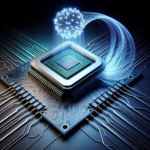How CPUs Contribute to Secure Cloud Storage Solutions

How CPUs Contribute to Secure Cloud Storage Solutions
In the digital age, cloud storage has become an indispensable tool for both individuals and businesses. The ability to store, access, and share data from anywhere in the world offers unparalleled convenience. However, with this convenience comes the critical need for robust security measures to protect sensitive information. Central Processing Units (CPUs) play a pivotal role in ensuring the security of cloud storage solutions. This article delves into how CPUs contribute to secure cloud storage, exploring their functions, technologies, and the future of secure cloud computing.
The Role of CPUs in Cloud Storage
Understanding the CPU
The Central Processing Unit (CPU) is often referred to as the “brain” of a computer. It performs the essential task of executing instructions from programs, making it a critical component in any computing system. In the context of cloud storage, CPUs are responsible for processing data, running security protocols, and managing encryption and decryption tasks.
Data Processing and Management
CPUs handle the processing of vast amounts of data in cloud storage environments. They manage data input and output operations, ensuring that data is stored and retrieved efficiently. This involves complex algorithms and processes that require significant computational power. Efficient data processing is crucial for maintaining the integrity and availability of data in cloud storage.
Encryption and Decryption
One of the primary ways CPUs contribute to secure cloud storage is through encryption and decryption processes. Encryption transforms readable data into an unreadable format, which can only be reverted to its original form using a decryption key. CPUs execute these cryptographic algorithms, ensuring that data remains secure during transmission and storage. Advanced Encryption Standard (AES) and Rivest-Shamir-Adleman (RSA) are examples of encryption algorithms commonly used in cloud storage solutions.
Technologies Enhancing CPU Security
Hardware-Based Security Features
Modern CPUs come equipped with hardware-based security features designed to enhance data protection. These features include:
- Trusted Execution Environment (TEE): A secure area within the CPU that ensures sensitive data is processed in a protected environment, isolated from the rest of the system.
- Secure Boot: A process that ensures the system boots using only software that is trusted by the CPU manufacturer, preventing unauthorized code from running during startup.
- Hardware Security Modules (HSMs): Dedicated hardware devices that manage cryptographic keys and perform encryption and decryption tasks, providing an additional layer of security.
Virtualization and Isolation
Virtualization technology allows multiple virtual machines (VMs) to run on a single physical server, each isolated from the others. CPUs play a crucial role in managing these virtual environments, ensuring that data and processes within one VM do not interfere with those in another. This isolation is vital for maintaining data security in multi-tenant cloud environments, where multiple users share the same physical resources.
Secure Enclaves
Secure enclaves are specialized areas within the CPU that provide an additional layer of security for sensitive data. These enclaves use encryption to protect data in use, ensuring that even if the operating system is compromised, the data within the enclave remains secure. Intel’s Software Guard Extensions (SGX) and AMD’s Secure Encrypted Virtualization (SEV) are examples of technologies that utilize secure enclaves.
CPUs and Cloud Security Protocols
Transport Layer Security (TLS)
Transport Layer Security (TLS) is a cryptographic protocol designed to provide secure communication over a computer network. CPUs are responsible for executing the complex mathematical operations required for establishing and maintaining TLS connections. This ensures that data transmitted between clients and cloud servers is encrypted and protected from eavesdropping and tampering.
Secure Hash Algorithms (SHA)
Secure Hash Algorithms (SHA) are cryptographic hash functions used to ensure data integrity. CPUs perform these hashing operations, generating unique hash values for data blocks. Any alteration in the data results in a different hash value, making it easy to detect unauthorized changes. SHA-256 is a commonly used hash function in cloud storage solutions.
Public Key Infrastructure (PKI)
Public Key Infrastructure (PKI) is a framework for managing digital certificates and public-key encryption. CPUs handle the cryptographic operations involved in PKI, such as key generation, digital signing, and certificate validation. This ensures that only authorized users and devices can access cloud storage resources.
Challenges and Future Directions
Performance vs. Security
One of the primary challenges in secure cloud storage is balancing performance and security. Cryptographic operations are computationally intensive and can impact system performance. Modern CPUs are designed to optimize these operations, but there is always a trade-off between security and speed. Future advancements in CPU technology aim to minimize this trade-off, providing robust security without compromising performance.
Quantum Computing
Quantum computing poses both challenges and opportunities for secure cloud storage. While quantum computers have the potential to break current cryptographic algorithms, they also offer new possibilities for creating more secure encryption methods. CPUs will need to evolve to support quantum-resistant algorithms, ensuring the continued security of cloud storage solutions in the quantum era.
Edge Computing
Edge computing involves processing data closer to its source, reducing latency and bandwidth usage. As edge computing becomes more prevalent, CPUs will play a crucial role in ensuring data security at the edge. This includes implementing encryption, secure boot, and other security measures in edge devices.
FAQ
What is the role of a CPU in cloud storage?
The CPU is responsible for processing data, running security protocols, and managing encryption and decryption tasks in cloud storage environments. It ensures efficient data processing, maintains data integrity, and protects sensitive information through cryptographic operations.
How do CPUs handle encryption and decryption in cloud storage?
CPUs execute cryptographic algorithms such as Advanced Encryption Standard (AES) and Rivest-Shamir-Adleman (RSA) to transform readable data into an unreadable format (encryption) and revert it to its original form (decryption). This ensures that data remains secure during transmission and storage.
What are hardware-based security features in modern CPUs?
Modern CPUs come equipped with hardware-based security features such as Trusted Execution Environment (TEE), Secure Boot, and Hardware Security Modules (HSMs). These features enhance data protection by providing secure areas for processing sensitive data, ensuring trusted software execution, and managing cryptographic keys.
How do CPUs contribute to virtualization and isolation in cloud environments?
CPUs manage virtual environments by allowing multiple virtual machines (VMs) to run on a single physical server, each isolated from the others. This isolation ensures that data and processes within one VM do not interfere with those in another, maintaining data security in multi-tenant cloud environments.
What are secure enclaves, and how do they enhance CPU security?
Secure enclaves are specialized areas within the CPU that provide an additional layer of security for sensitive data. They use encryption to protect data in use, ensuring that even if the operating system is compromised, the data within the enclave remains secure. Examples include Intel’s Software Guard Extensions (SGX) and AMD’s Secure Encrypted Virtualization (SEV).
What challenges do CPUs face in balancing performance and security?
Cryptographic operations are computationally intensive and can impact system performance. Modern CPUs are designed to optimize these operations, but there is always a trade-off between security and speed. Future advancements in CPU technology aim to minimize this trade-off, providing robust security without compromising performance.
Conclusion
CPUs play a critical role in ensuring the security of cloud storage solutions. From data processing and encryption to managing secure enclaves and virtualization, CPUs are at the forefront of protecting sensitive information in the cloud. As technology continues to evolve, CPUs will need to adapt to new challenges such as quantum computing and edge computing, ensuring that cloud storage remains secure in an ever-changing digital landscape. By understanding the contributions of CPUs to cloud security, we can better appreciate the complexities involved in safeguarding our data and the ongoing efforts to enhance cloud storage solutions.




